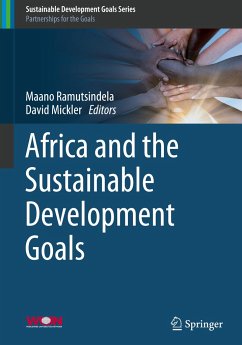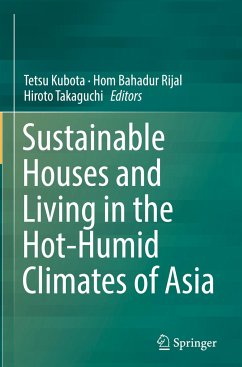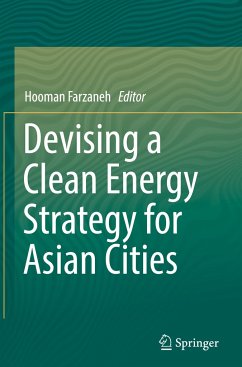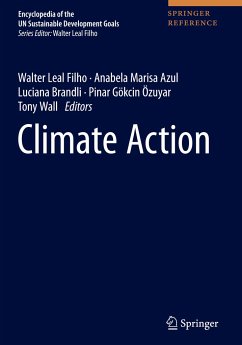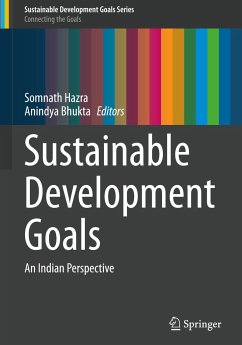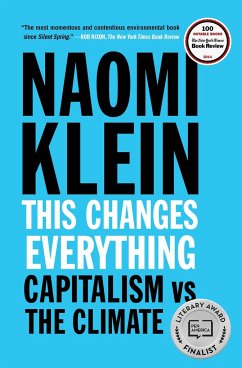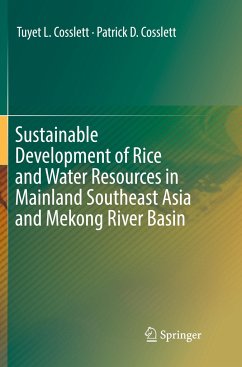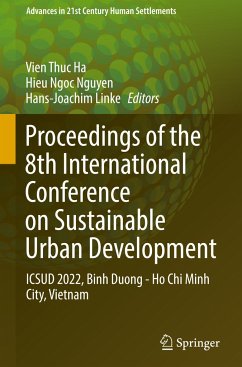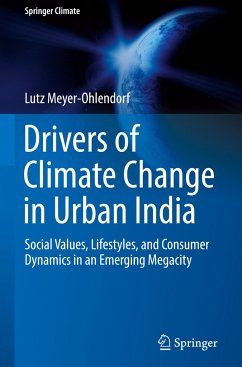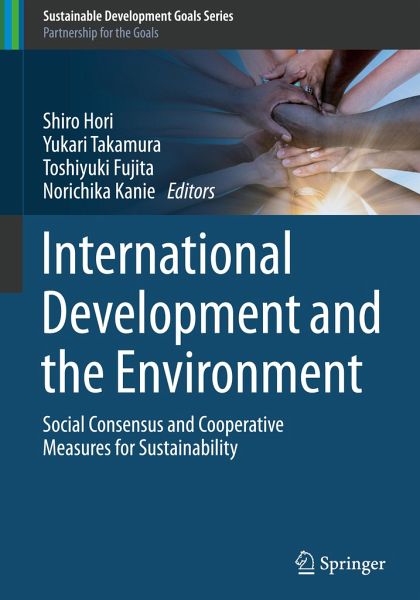
International Development and the Environment
Social Consensus and Cooperative Measures for Sustainability
Herausgegeben: Hori, Shiro; Takamura, Yukari; Fujita, Toshiyuki; Kanie, Norichika

PAYBACK Punkte
46 °P sammeln!
This book analyzes the interplay between development and the environment, focusing on how to forge social consensus and practices in the international community. Since the Rio Earth Summit in 1992, sustainable development has increasingly attracted the attention of the international community, and several international agreements have been concluded to combat issues such as climate change. The Sustainable Development Goals (SDGs) were introduced as common objectives, and the Paris Agreement was adopted as a subsequent outcome. In light of today's globalized world, how to best achieve sustainab...
This book analyzes the interplay between development and the environment, focusing on how to forge social consensus and practices in the international community. Since the Rio Earth Summit in 1992, sustainable development has increasingly attracted the attention of the international community, and several international agreements have been concluded to combat issues such as climate change. The Sustainable Development Goals (SDGs) were introduced as common objectives, and the Paris Agreement was adopted as a subsequent outcome. In light of today's globalized world, how to best achieve sustainable development-and prioritize climate change in particular-is an issue involving various perspectives on the environment and economic development in the global community.
The book provides students, businesspeople and government officials with a concept of sustainable development that is based on using social consensus, social norms, and practices (cooperative global actions) to achieve common goals. It is divided into three parts, the first of which focuses on the goals and development needed to achieve sustainable development. The second part explores measures to promote sustainable development, while the third highlights current climate change issues and aspects related to the effective implementation of international frameworks.
The book provides students, businesspeople and government officials with a concept of sustainable development that is based on using social consensus, social norms, and practices (cooperative global actions) to achieve common goals. It is divided into three parts, the first of which focuses on the goals and development needed to achieve sustainable development. The second part explores measures to promote sustainable development, while the third highlights current climate change issues and aspects related to the effective implementation of international frameworks.



